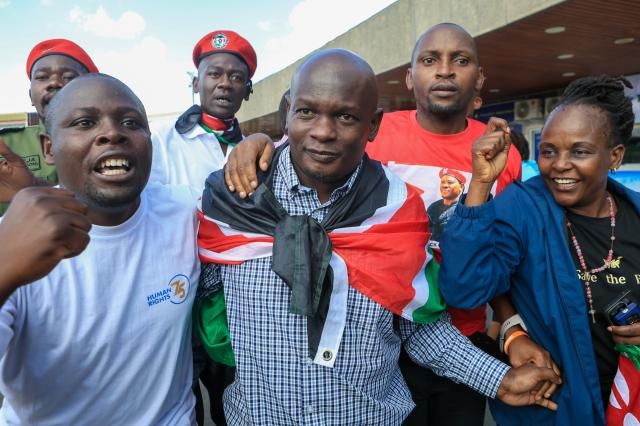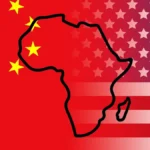Ugandan President Yoweri Museveni has publicly acknowledged for the first time that two missing Kenyan activists, Bob Njagi and Nicholas Oyoo, were indeed arrested and held by Ugandan security forces for over five weeks.
The pair disappeared last month after attending a political event in Uganda in support of opposition leader Bobi Wine. Witnesses reported that masked, uniformed men abducted them and forced them into a vehicle. For weeks, Ugandan authorities denied detaining the men, fueling speculation about their fate.
During a live television interview on Saturday, President Museveni admitted that the two activists were taken into custody, describing them as “experts in riots” who had been “put in the fridge for some days.”
The revelation came just hours after the men were released and flown back to Nairobi, where they were welcomed by supporters. Speaking after his release, Njagi recounted their ordeal: “Thirty-eight days of abduction was not easy. We didn’t think we were going to come out alive because we were being abducted by the military.”
Kenya’s Foreign Minister Musalia Mudavadi confirmed that their release followed “sustained diplomatic engagement between Kenya and Uganda.” Advocacy groups including Vocal Africa, the Law Society of Kenya, and Amnesty International issued a joint statement thanking both governments and regional campaigners for securing the men’s freedom.
Museveni claimed he ordered their release after receiving calls from “some Kenyan leaders,” while warning that “foreign groups” stirring unrest in Uganda would “end up badly.”
Opposition leader Bobi Wine, who plans to challenge Museveni in next year’s presidential election, accused the government of abducting the Kenyans because of their association with him. “If they committed any offence, why were they not produced before a court and charged?” he asked.
The incident has intensified scrutiny of Uganda’s record on human rights and its treatment of political activists. Human rights observers have repeatedly accused Museveni’s administration of using abductions, secret detentions, and torture to suppress dissent.
The case also echoes similar incidents across East Africa, where cross-border arrests of critics have raised fears of growing cooperation among regional governments to silence opposition voices.
Museveni, in power since 1986, faces renewed criticism at home and abroad for tightening his grip on power ahead of the 2026 elections, as Uganda’s security services continue to target those aligned with the opposition.













Leave a comment